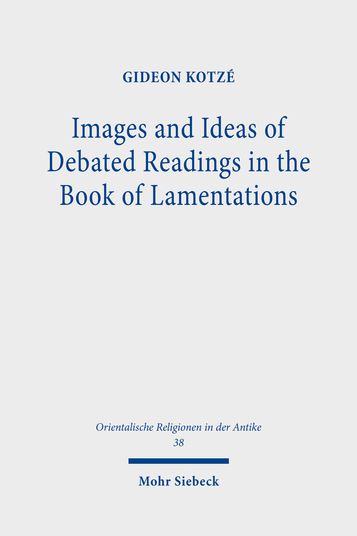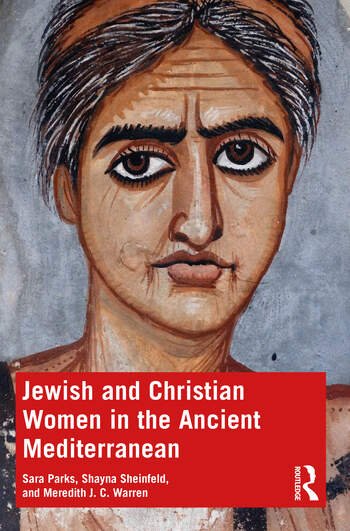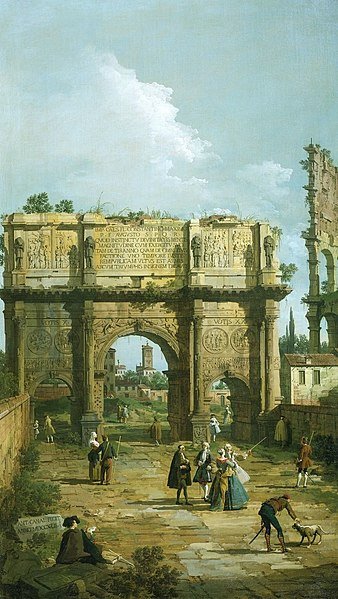“Flying in the face of scholarship’s “hermeneutical exorcism,” Carlson tells ethnographic stories about people who experience spirit phenomena. Reading their stories has the potential to generate what Édouard Glissant calls the “poetics of relation.” Opportunities for renewed and reconnective perception and perspective-taking, Glissant’s poetics of relation are his key to the project of “transforming mentalities and reshaping societies.””
Read MoreSBL 2022 Review Panel: Unfamiliar Selves in the Hebrew Bible
The 2022 SBL Book Review panel of Unfamiliar Selves in the Hebrew Bible: Possession and Other Spirit Phenomena (De Gruyter 2022) by Reed Carlson. The panelists were: Jutta Jokiranta (University of Helsinki), David Lambert (University of North Carolina), Ingrid Lilly (Wofford College), and Ethan Schwartz (Villanova University).
Read MoreMultilingualism and Translation in Ancient Judaism
Steven Fraade provides a preview of his forthcoming publication on Multilingualism and Translation in Ancient Judaism (Cambridge University Press, June 2023).
Read MoreRetrospective | My Journey with the Dead Sea Scrolls
“I often think that scholarly understanding of the biblical Dead Sea Scrolls and I grew up together; over the years, and now decades, a paradigm shift has occurred in the field, and my own views have changed along with it.”
Read MoreRediscovering Enoch from the Fifteenth to Nineteenth Century
Annette Reed introduces the dynamic range of scholarship in a new edited volume discussing Enoch’s modern reception.
Read More"Going West" in Talmudic Literature | Publication Preview
Reuven Kiperwasser shares his process of writing Going West: Migrating Personae and Construction of the Self in Rabbinic Culture in his own transient state.
Read MoreImages and Ideas of Debated Readings in the Book of Lamentations
The project Kotzé sets out on, then, is more than a guide for text critical issues in Lamentations. It seeks, rather, to blend text criticism with an interpretive process keen on finding contemporary parallels in neighboring cultures.
Read More2022 AJR Year in Review
Rethinking The “People of the Book”
By thinking with premodern Christians as they imagined Muslims and Jews, we can also take a reflexive look at ourselves in the present. How and why do we identify with objects, particularly those from the past?
Read MoreDivine Accounting: Theo-Economics in Early Christianity
In Divine Accounting, Quigley contends that the modern categories of “theology” and “economics” were not separate in antiquity but intertwined.
Read MoreChristian Monastic Life in Early Islam
My book attempts to address this particular historical context and argues for not only a general religious tolerance in the early centuries of Islam, but for an overlapping of sectarian boundaries throughout the period.
Read MoreLiterary Theory and the New Testament
Throughout Literary Theory and the New Testament, Dinkler builds a persuasive case for the contributions literary theory continues to make to the field of New Testament studies.
Read MoreThe Journey of Christianity to India in Late Antiquity: Networks and the Movement of Culture
The Journey of Christianity to India in Late Antiquity is a compelling take on how some Christians imagined an interconnected late ancient world.
Read MoreJewish and Christian Women in the Ancient Mediterranean
The authors explore in detail the roles women played, attending to commonalities and particularities of “Jew and Gentile” women. From the very beginning, the authors take great care to guide those who will teach from this textbook, and they are explicit about the book’s scope and limitations. Readers will find not only a useful primer for studying gender within ancient texts, but also, a detailed account of the various ways in which readers and students themselves interpret these texts.
Read MoreThe Spirit within Me: Self and Agency in Ancient Israel and Second Temple Judaism
“In this innovative and deeply engaging study, Newsom sparks new ways of thinking about models of moral agency in biblical and early Jewish literature and paves the way for a broader application of the analysis that considers Jewish literature composed in Greek or the literature of other cultures.”
Read MoreThe Politics of Roman Memory: From the Fall of the Western Empire to the Age of Justinian
What did being Roman mean after 476? And how did the notion that the Roman empire could fall shape political rhetoric in the east?
Read MoreThe Narrative Shape of Emotion in the Preaching of John Chrysostom
Weaving together studies of emotion, homiletics, and biblical exegesis, this work offers an important analysis of a recurrent theme in Chrysostom’s preaching.
Read MoreMemory in a Time of Prose
By focusing on known dynamics of memory and archaeological evidence, Pioske brings together sometimes-disparate methodological considerations to make a persuasive case for how one might engage in a historically and theoretically responsible way with the knowledge claims made in early Hebrew texts.
Read MoreEusebius and Empire: Constructing Church and Rome in the Ecclesiastical History
Corke-Webster argues that the History reflects Eusebius’ particular socio-political circumstances during the first quarter of the fourth century.
Read MoreInstitutionalized Routine Prayers at Qumran: Fact or Assumption?
[H]is project does bring to the fore the question of what these terms—as classificatory labels—might have meant to the ancient authors who used them, and, perhaps more within our control, what they mean for scholars today. If our evidence seems to resist our current attempts at classification, perhaps we need to rethink how we are classifying.
Read More

















